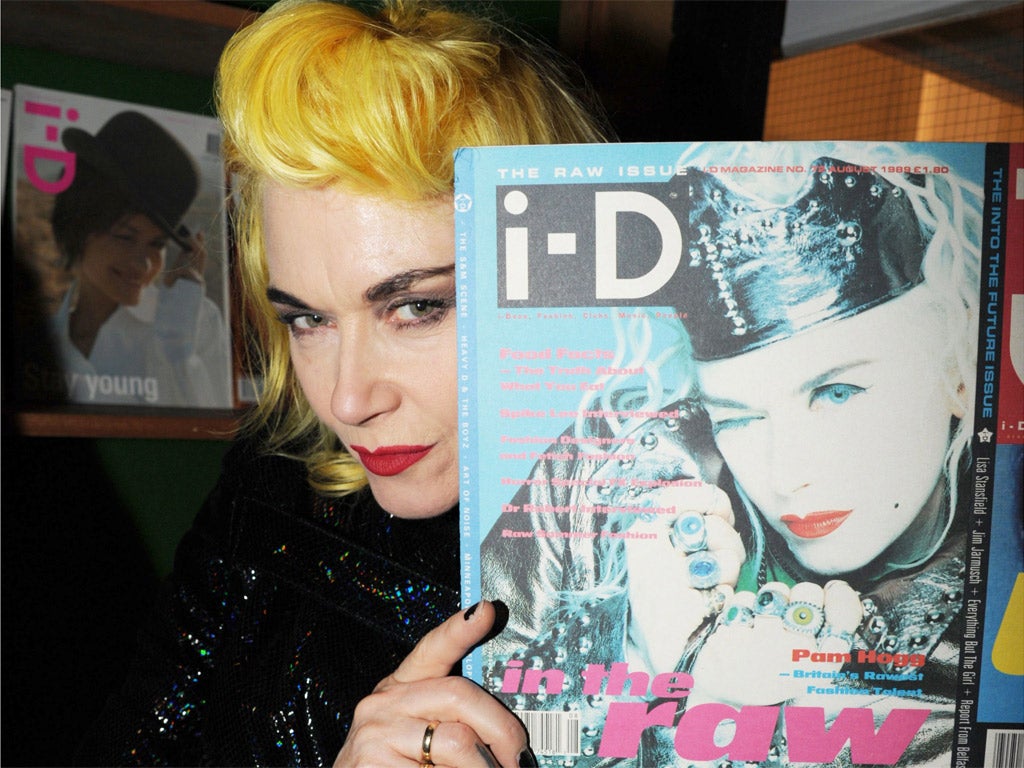Murdoch family tighten their grip on Vice
Everybody is talking about the youth media company since Rupert bought a stake. Now, James is set to join the board

Your support helps us to tell the story
From reproductive rights to climate change to Big Tech, The Independent is on the ground when the story is developing. Whether it's investigating the financials of Elon Musk's pro-Trump PAC or producing our latest documentary, 'The A Word', which shines a light on the American women fighting for reproductive rights, we know how important it is to parse out the facts from the messaging.
At such a critical moment in US history, we need reporters on the ground. Your donation allows us to keep sending journalists to speak to both sides of the story.
The Independent is trusted by Americans across the entire political spectrum. And unlike many other quality news outlets, we choose not to lock Americans out of our reporting and analysis with paywalls. We believe quality journalism should be available to everyone, paid for by those who can afford it.
Your support makes all the difference.James Murdoch is being lined up as a director of Vice Media in what would be his second significant boardroom job since the phone-hacking scandal forced him to resign a string of roles. He is believed to have been a driving force behind the decision by his father Rupert's 21st Century Fox to take a 5 per cent stake in the $1.4bn (£875m) youth media company in August.
Vice and Fox did not comment. But it would not be a surprise if the younger Mr Murdoch, who added the chairmanship of Sky Deutschland to his day job as number in three in Fox, was keen to get involved in Vice. He ran the hip-hop label Rawkus in the 1990s before moving into his father's empire.
Vice also has its roots in the same decade. Shane Smith co-founded it as an edgy youth magazine in 1994. Now it has a monthly, free print circulation of more than 1.2 million worldwide. But the real reason Vice has taken off in the last few years is that it has embraced online video and begun working with brands to make sponsored content.
The advertising group WPP and the US boutique investment bank Raine are among the other eye-catching big-name investors to have taken minority stakes in recent years. It seems everyone wants a slice of Vice because of its reach and scale.
Its websites, which include music site Noisey and tech site Motherboard, get 80m video views a month, and it is one of the most popular YouTube channels. The group employs more than 1,000 people in 35 offices, and turnover is about $175m (£110m).
Unlike some online publishers, Vice invests in its own offbeat journalism and has moved into current affairs with video reports on the ground from such places as North Korea and Bolivia. Vice has hired 60 current affairs journalists in recent months, taking its news team to 100.
"Some of our most engaged and watched content has been current affairs," says Matt Elek, Vice Media's European boss — proof that people under 34, dubbed Millennials because they were born in the 20 years before the millennium, like it. "Our assertion is it's not that young people are disengaged, they just don't like the news that is given to them by the establishment, by the traditional news agencies," Mr Elek adds
It is a compliment to Vice that broadcasters from CNN and HBO to BBC4 and Channel 4 have now bought its shows.
When Canadian-born Mr Elek, 33, joined in 2002, the group got about 95 per cent of revenues from print. Now it is less than 5 per cent, although he says print hasn't shrunk – it is just that other revenues have soared as Vice experimented. "We learn as we go, rather than fussing around for three years." He sees few competitors, although he name-checks BuzzFeed, Dazed & Confused and NME.
Vice has not forgotten print. The London office in Shoreditch, with more than 150 staff and half a dozen video edit suites, has rows of shelves with back issues lovingly displayed. Vice has also bought i-D, the cult style magazine from the Eighties, and last week relaunched its website as a video platform.
The home page features "i-D's first ever music video", starring rapper M.I.A., which has been made "in collaboration" with fashion label Kenzo. This is typical of Vice, which has its own "full-service" creative agency, Virtue, that works with clients such as Intel, Nike and Red Bull to develop campaigns and make content to appear on Vice or elsewhere — to suit an age where traditional ads struggle to cut through.
Vice has also cultivated a group of bloggers, the Vice Blogger Network. They can choose to write about brands linked to Vice or get paid as Vice can "place content or advertising" on their sites.
Some may feel queasy at this blurring of editorial and advertising but Elek insists: "Young people are more open-minded about the role of brands in the provision of entertainment and digital experiences. The idea of selling out doesn't ring as true as it did 15 years ago. Brands have become an important identifier in young people's lives – brands you associate with, rather than having a negative impact."
Mr Elek says the company is concerned with more than just being a successful business as he talks about Vice becoming "a cultural entity" that can "define a generation". It certainly has a definite style — so much so that there is an amusing spoof Twitter account, Vice Is Hip.
"Once people start parodying you, then you know you've got some cultural cachet," he says. "No one gives a s*** about parodies of companies that you've never heard of."
Join our commenting forum
Join thought-provoking conversations, follow other Independent readers and see their replies
Comments